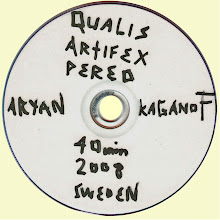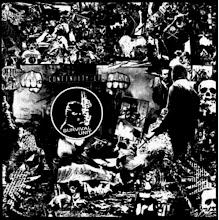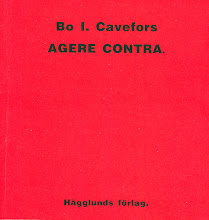'
OXÖGAT #14.
'
The Pope and Bishop Williamson
By Thomas J. Reese, S.J.
Senior Fellow, Woodstock Theological Center, Georgetown University, Washington DC
'
The lifting of the excommunication of Bishop Richard Williamson by Pope Benedict XVI caused a firestorm of protest from Jews and liberal Catholics. Jewish leaders expressed shock and hurt because Bishop Williamson had denied the reality of the Shoah (Holocaust) that exterminated millions of Jews. Catholic liberals complained that Williamson and the three other bishops of the St. Pius X Society have still not accepted the Second Vatican Council.
The complaints against Bishop Williamson are on target. He is a Shoah denier and does not accept Vatican II. His views on women are also anachronistic. He disapproves of women in pants and says women should not go to universities. This is a man who would be happier living in the 19th century, like many members of the Lefebvre movement who have not recovered from the French revolution. Oh yes, he also believes that the World Trade Center was destroyed by explosions, not by airplanes.
Three aspects of this debacle need to be separately examined: the decision to lift the excommunication, how it was made and how it was communicated to the world.
The Decision
The media has described the decision to lift the excommunication of Bishop Williamson as the pope “rehabilitating” him, “returning him to the fold,” and “embracing” him. None of this is true.
The four bishops, along with Archbishop Marel Lefebvre, were excommunicated because Lefebvre ordained them as bishops without the approval of the pope. They were not excommunicated because of their beliefs about the Shoah or Vatican II. They were excommunicated because they were ordained bishops.
Lifting the excommunication says nothing about their beliefs. It is the ecclesia equivalent of a “cease fire” not a peace treaty. The bishops are still suspended from ministry, they are forbidden to act as bishops or even as priests. Long and difficult negotiations will be needed to bring about any reconciliation between the Vatican and the Society of St. Pius X. There is a very good chance that these negotiations will fail.
As one who believes that the Catholic Church should be a big tent with room for different views, I do not criticize the pope’s attempt to reach out to the Lefebvrites. In my view, lifting the excommunications was a judgment call, and I would defend the pope’s right to make that decision. My disappointment is that while the Vatican is enthusiastic in wooing the right, it has no patience with the left. Only the right side of the cafeteria is open.
Why is the Vatican putting so much effort into reconciliation with the Society of St. Pius X? The real reason is because these men are bishops. If they were simple priests, the Vatican would not give them the time of day. The Vatican is caught by it own theology that sees these men as validly if not licitly ordained. As a result, these bishops can ordain more bishops and the schism can go on forever.
If the bishops ordain more bishops, they will again suffer excommunication. If the bishops refrain from ordaining new bishops, the schism ends when these four bishops die even if they are not reconciled with the pope. If lifting the excommunication is the price for keeping the bishops from ordaining more bishops, then in the view of the Vatican it is a cheap price to pay.
The Decision-Making Process
This latest controversy and others that preceded it (like his Regensburg address) point to a fatal systemic flaw in the Benedict papacy that is destroying his effectiveness as pope: He does not consult experts who might challenge his views and inclinations.
No one disputes the fact that Benedict is a brilliant theologian, but he is surrounded by people who are not as smart as he is and who would never think of questioning him. How do you challenge someone who you think is the smartest man in the world?
A smart person surrounded by less than smart people will always get in more trouble than an average person who consults smart people who are experts in their fields. The fact that Walter Kasper was not consulted on lifting the excommunication is just another in a long line of examples.
The firestorm that followed the decision should have been foreseen and prepared for. Unnamed sources in the Vatican are saying that they did not know that Williamson was a Shoah denier. Haven’t they heard of Google?
In any other organization, heads would roll after so many disasters, but in the Vatican, loyalty still trumps competence. The pope needs a good chief of staff who would make sure this kind of thing does not happen.
Communicating the Decision
Finally, the way in which this decision was communicated to the world was a disaster. Benedict still acts like a German professor who can demand the undivided attention of his students. He has little PR sense. He needs people to protect him from himself.
Special efforts should have been made to communicate the decision to Jewish leaders. For example, after explaining to them that the decision did not represent an endorsement of the bishops’ views, the Vatican could have argued that during its dialogue with the Society, it would try to change the Lefebvrites’ views on Jews. It could argue that it is better for the Jews if the church acts as a check on the Lefebvrites than if they are simply left to fester by themselves. This argument and other arguments might not have worked, but Jewish leaders would have known that the Vatican takes their feelings seriously.
The Vatican still believes that all it has to do is announce a decision by the pope and everyone will greet it with enthusiasm. One-page press releases will not do it. Most large American universities have more sophisticated media offices than does the Vatican, which is the headquarters for a 1.1-billion member organization. Simply setting up a YouTube channel will not do it either. The Vatican needs a sophisticated and modern communications strategy.
The sad thing is that Pope Benedict is saying and doing many great things, but these media disasters are undermining his papacy. His words about peace, justice, refugees and the economic crisis are not being heard. Benedict wants to be a pastor and teacher, but he needs people who know how to run an organization and communicate in the 21st century, and he does not have them. The Vatican’s model for the papacy is still the absolute monarchies and royal courts of the past. That model simply will not work today.
Copyright©Thomas J. Reese SJ, 2009.
4.2.09
Subscribe to:
Post Comments (Atom)

































No comments:
Post a Comment